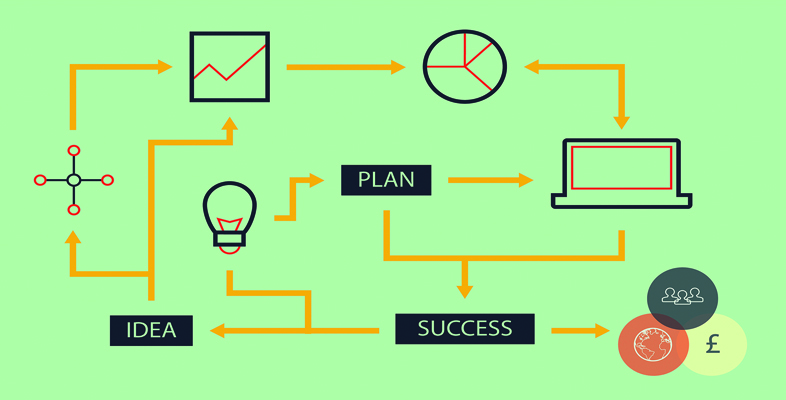6 Summary
Successful entrepreneurs learn to deal with uncertainty – if you could predict everything beforehand, life would be much easier, but arguably also much duller! Fortunately it is possible to move forward and take corrective action as you go or to start a venture part time until you are confident to go all out. Many successful businesses have done that.
In this final session, you have:
- considered how you can overcome fear and anxiety to take the next steps
- recognised the importance of widening your network by bringing other people on board
- identified what makes a good pitch
- set your own bottom line – what constitutes success for you.
While it might seem that serial entrepreneurs are impulsive, or even compulsive, risk takers, in many ways this is not the case. They often operate based on the principle you were introduced to earlier in this session of ‘acceptable loss’. In other words, they understand what the bare minimum is they (and anyone they are responsible for) could survive on, and for how long, if nothing or very little came in from the business. This leads them to carefully consider costs, to listen very carefully to advice, especially from those who have made mistakes, and to differentiate between those who are committed to their idea and those who are not.
There are no guarantees of success and it is true that many businesses fail. Throughout this course you have looked at best practice and have been introduced to research to help your enterprise succeed. Success though is a relative thing and something you have to define for yourself.
Through the process of being in business you will continue to learn and, by doing so, drive down the cost of the next step on the journey to a point where it doesn’t make sense not to do it. By keeping moving, and taking corrective action as you go, you prevent the ‘paralysis by analysis’ that comes from over-thinking. This takes you back to the early premise that entrepreneurship and being enterprising is something that correlates very closely with learning: learning about yourself, learning about what you know that you can use (probably more than you think) and being open to learning about things you don’t know about or how to do yet.
In this course you have been introduced to many concepts and theories (knowledge), as well as activities to develop some key skills. These include analysing situations and opportunities, creating alternatives and thinking critically about them, and making judgements and decisions about people, situations, opportunities and threats.
Entrepreneurs must be good at enlisting the support of others and so you have been introduced to the ideas around marketing and communicating about your business model and your idea. You have also been introduced to skills that will help you to structure your ideas and actions. These are all extremely valuable skills for your future employability, should you change your mind about running your business.
You may well have started out with an idea and developed it through this course, but equally you may well have changed direction. Hopefully, you have at least gained from the insights of others who have started and built their business and this will stand you in good stead for the future in whatever circumstances you use these. Congratulations on taking the first step towards making your enterprise a success.
